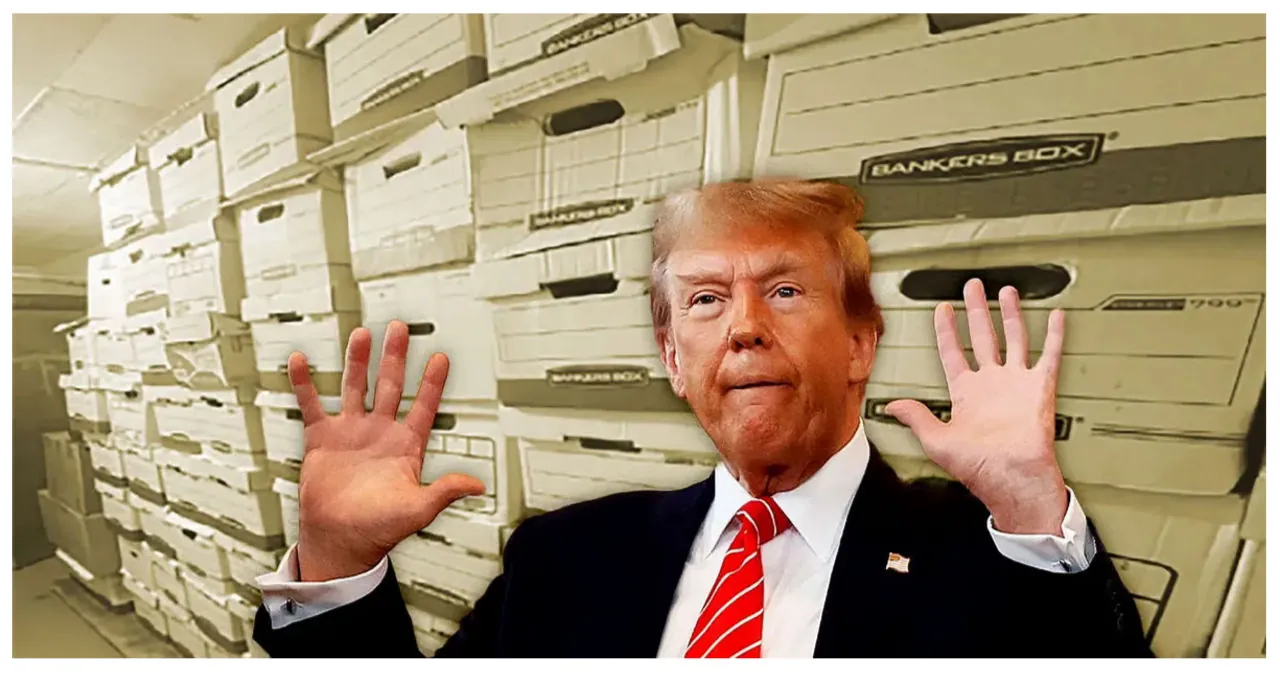It is becoming more and more evident that the highest-ranking officials in the U.S. government have failed in their duty to safeguard national security. Recent investigations have revealed that Joe Biden, Mike Pence, Hillary Clinton, and former FBI director James Comey were complicit in mishandling and improperly storing classified documents, thus jeopardizing our country’s secrets. However, according to a filing made by special prosecutor Jack Smith on Thursday, Donald Trump sets himself apart by his excessive accumulation of national security documents.
The Intelligence Community and the Departments of State, Defense, and Homeland Security have high expectations for the chief executive to lead by example, especially considering the risks they take to protect the country. It has been reported that Trump kept 70 boxes of classified documents at his Mar-a-Lago resort. Prosecutors allege that during his presidency, Trump used an informal filing system, accumulating and storing records in dozens of boxes. When his presidency ended in January 2021, approximately 85 to 95 of these boxes were taken from the White House to Trump’s residence in Palm Beach, Florida, where they were later placed in a storage room.
According to Smith, no one else is in a similar situation.
Why and how should classified material be stored and handled properly? First and foremost, these documents contain valuable information about the sources and methods used to gather intelligence, which adversaries would be keen to learn in order to prevent the U.S. from accessing similar information in the future. Therefore, it is crucial that classified material is only viewed in designated areas that have been cleared for such purposes, such as sensitive compartmented information facilities (SCIFs). When no longer needed, it should either be destroyed or securely stored in approved containers or areas, ideally by using authorized shredders based on the level of classification.
Moreover, exposure of classified material could potentially reveal vital information about the plans and capabilities of the U.S., thereby leaving the country vulnerable to those who harbor ill intentions. Additionally, if malicious actors were to discover such material, they could exploit it for obtaining further information or applying pressure on the holders. Finally, if adversaries were able to gain access to these materials, it could provide them with indicators and warnings about potential actions the U.S. may take against them.
In order to mitigate these risks, it is imperative that classified material is handled with utmost care, ensuring that it remains secure and only accessible to authorized individuals in appropriate settings. By doing so, we can safeguard sensitive information and protect national security.
Public administrators who work as leaders have the inherent responsibility of earning and maintaining the trust of the public they serve. Whether they are career government employees, political appointees, or politicians, those who need access to classified information must recognize the importance of safeguarding this information to protect their nation’s secrets. Therefore, it is crucial to establish a single standard that applies to everyone, including government employees, political appointees, and politicians. No favoritism or exemptions should be granted based on one’s position in the realm of national security.
According to a report released in 2022, approximately 4.2 million individuals held security clearances in the United States. The U.S. government categorizes information into three levels beyond unclassified: confidential, secret, and top secret. Among those with security clearances, the majority held secret clearances, granting them access to sensitive information that could potentially cause significant harm. Around 1.3 million individuals had access to top secret information, which involves classified material that poses an exceptionally grave threat to national security.
The leaking of classified information goes beyond any specific political party, as both Trump and Biden have been found to possess secret and top secret level documents. It is concerning that they not only mishandled these documents by retaining them when they no longer had a need for them, but also failed to store them properly. This raises questions about who may have gained access to this information, which could have serious consequences for the security of our country. According to Smith, while Biden, Clinton, Comey, and Pence’s cases of classified document mishandling have some similarities to this case, none of them are alleged to have intentionally kept a large collection of highly sensitive and confidential materials, repeatedly tried to prevent their lawful return, and engaged in a complex scheme of deception and obstruction.
Every year, professionals in the Intelligence Community undergo extensive training on the importance of handling classified information responsibly. They learn about the significance of implementing effective strategies to prevent mishandling and improper storage of such sensitive material.
Leaders at all levels of authority have a crucial role to play in setting an example for others. Regardless of political affiliation or whether someone holds an elected office, a political appointment, or a career in the government, all individuals with access to classified information must understand their responsibility to safeguard such documents and be held to the same standard. This responsibility starts with the President of the United States. It is imperative that the mishandling and improper storage of classified material be addressed and put to an end. Those working in national security rely on individuals with security clearances, irrespective of their position, to handle sensitive information appropriately. Therefore, we advocate for enhanced procedures when offboarding high-ranking officials, ensuring that the standards are upheld, regardless of their level of power.

